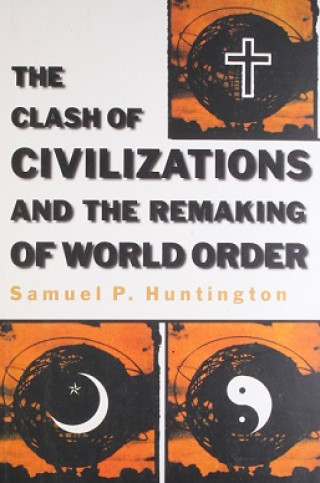What made “The Clash” radioactive was not just its unfashionable pessimism or its author’s establishment pedigree. Rather, it seemed to explain complex global realities in a novel, simple way. The Gulf war could, if one squinted hard enough, impersonate a conflict between different countries from different civilizations. The same was true of the Yugoslav Wars then raging, the Israeli-Arab conflict, and China’s opposition to U.S. policies. Any friction between states with different cultures could appear as evidence of a clash between civilizations, as could any friendship between countries with similar cultures, which Huntington called “kin countries.” Even an inchoate sense that other people around the world were just somehow different from Westerners could be justified in civilizational terms.
Huntington also had something going for him that most political scientists do not: He could really write. His sentences were clear, bold, and blunt, perhaps at times to a fault. “Differences among civilizations are not only real; they are basic,” he wrote. Huntington was notable for his confidence in writing declarative sentences that simplistically categorized billions of people. The world would be shaped, he said, by “Western, Confucian, Japanese, Islamic, Hindu, Slavic-Orthodox, Latin American, and possibly African civilization.” Billions of humans were assigned to these eight groups. Each group possessed their own “philosophical assumptions, underlying values, social relations, customs, and overall outlooks on life.” This cultural determinism was nearly inescapable and explained the world’s complicated political and economic circumstances. “Islamic culture explains in large part the failure of democracy to emerge in much of the Muslim world,” he wrote, minimizing such weighty factors as geography, history, imperialism, economics, and leadership quality. Comprehending Huntington’s paradigm didn’t require knowing any history or global politics; anyone could just look at a globe, see the divisions, and chalk them up to inevitable cultural differences.
Huntington’s blithe generalizations about millions of people recalled discredited modes of thinking. In the book, he wrote that “civilization and race are not identical” but conceded that “a significant correspondence exists between the division of people by cultural characteristics into civilizations and their division by physical characteristics into races.” Civilizations as entities defined by stubborn cultural elements differed from civilizations defined by immutable racial characteristics—but the two were close enough to be kin themselves.
Relatedly, Huntington portrayed the West as unique and fretted that its very survival was threatened by mass immigration and Islam. Mexican immigrants particularly were not assimilating into the United States, inciting a “demographic invasion.” He saw civilizational conflict in such minor developments as Mexican immigrants demonstrating in Los Angeles against a referendum meant to deny state benefits to undocumented people. These sections of his book have largely been forgotten, but swaths of The Clash of Civilizations read like a Trump campaign brochure with footnotes.
